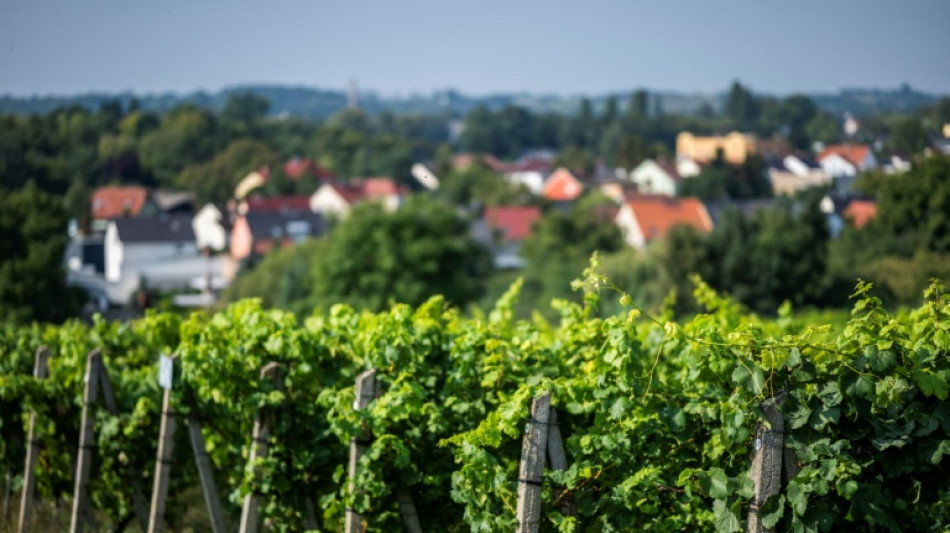
-
 Guinea to vote in constitutional referendum boycotted by opposition
Guinea to vote in constitutional referendum boycotted by opposition
-
Thousands take to streets as Philippines protests flood control fraud
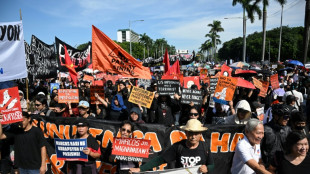
-
 Raleigh sets homer mark for Mariners in MLB win at Houston
Raleigh sets homer mark for Mariners in MLB win at Houston
-
Floating wind power sets sail in Japan's energy shift
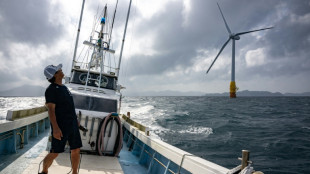
-
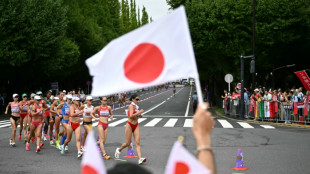 Crowd buzz in Tokyo makes up for Japan track and field flops
Crowd buzz in Tokyo makes up for Japan track and field flops
-
Messi brace lifts Miami in 3-2 MLS win over DC United

-
 Apprentices breathe new life into historic Savile Row
Apprentices breathe new life into historic Savile Row
-
Venezuela offers military training to public amid Trump threats
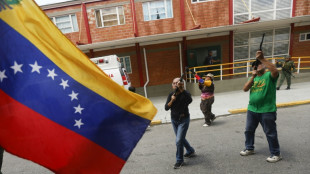
-
 In New York, an anti-fascist superhero rises -- at the Met
In New York, an anti-fascist superhero rises -- at the Met
-
Warmer climate boosts north German vineyards, for now
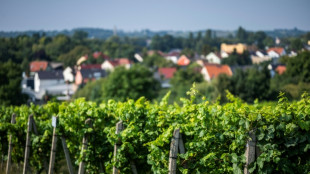
-
 Trump issues vague threat to Afghanistan over Bagram air base
Trump issues vague threat to Afghanistan over Bagram air base
-
De Minaur, Cerundolo propel Team World to Laver Cup lead over Europe

-
 Duplantis and McLaughlin-Levrone lit up world championships
Duplantis and McLaughlin-Levrone lit up world championships
-
French nuclear waste project sparks protest
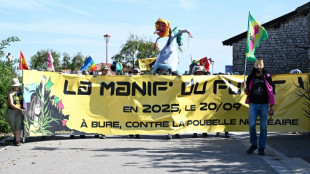
-
 Juventus top in Italy with Verona draw as Milan cruise
Juventus top in Italy with Verona draw as Milan cruise
-
Man Utd made win over Chelsea too 'complicated' says Amorim

-
 White House says $100,000 H-1B visa fee to be one-time payment
White House says $100,000 H-1B visa fee to be one-time payment
-
'Shocked, devastated': Gaza City assault leaves Palestinians traumatised
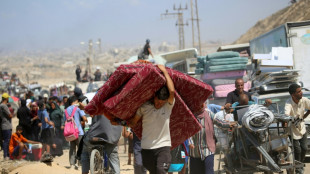
-
 Lyon edge Stade Francais in wild try-fest to stay top in France
Lyon edge Stade Francais in wild try-fest to stay top in France
-
Russia's USSR-era rival to 'decadent' Eurovision born anew

-
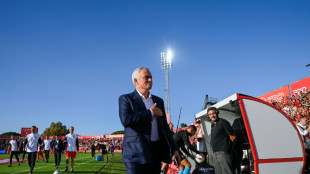 Mourinho celebrates Benfica return with convincing win
Mourinho celebrates Benfica return with convincing win
-
Man Utd earn vital win against Chelsea as Liverpool stay perfect

-
 Juventus climb top in Italy with draw at Verona
Juventus climb top in Italy with draw at Verona
-
Mitchell hails 'phenomenal' Kildunne as England reach World Cup final

-
 Man Utd beat Chelsea to ease pressure on Amorim
Man Utd beat Chelsea to ease pressure on Amorim
-
Hridoy and Hassan steer Bangladesh past Sri Lanka at Asia Cup

-
 Kildunne strikes as England see off spirited France in World Cup semi-final
Kildunne strikes as England see off spirited France in World Cup semi-final
-
Mbappe on target as Real Madrid defeat Espanyol

-
 Liverpool stay perfect in Premier League, Man Utd brace for Chelsea visit
Liverpool stay perfect in Premier League, Man Utd brace for Chelsea visit
-
Norris 'punching himself' for missing chance after Piastri crash
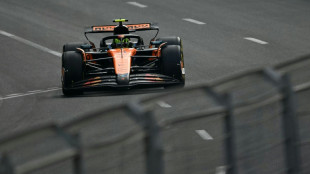
-
 Kane hits another Bayern hat-trick as Hamburg get first win
Kane hits another Bayern hat-trick as Hamburg get first win
-
Hamilton felt he was in the fight for pole before exit
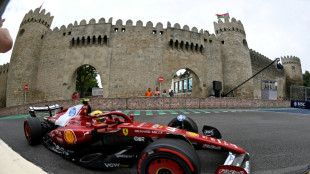
-
 Sri Lanka tries to hook anglers on invasive fish species
Sri Lanka tries to hook anglers on invasive fish species
-
Americans would dominate board of new TikTok US entity: W.House

-
 Kenya's Wanyonyi, Chebet deliver for Africa at the worlds
Kenya's Wanyonyi, Chebet deliver for Africa at the worlds
-
Verstappen takes pole after wild session of six red-flag crashes
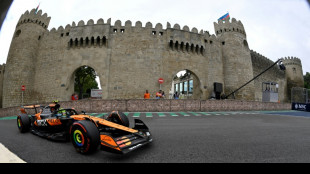
-
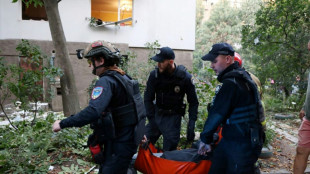 Zelensky plans new Trump meeting as Russia intensifies attacks
Zelensky plans new Trump meeting as Russia intensifies attacks
-
Pegula digs in to put USA in Billie Jean King Cup Finals

-
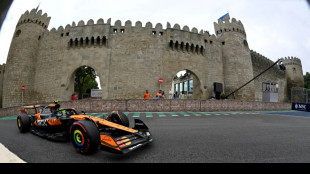 Verstappen claims pole in chaotic Azerbaijan Grand Prix qualifying
Verstappen claims pole in chaotic Azerbaijan Grand Prix qualifying
-
Elderly British couple back in UK after Taliban release
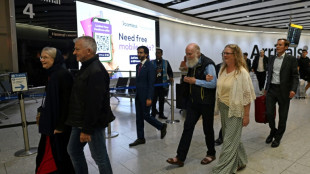
-
 Monaco lose captain Zakaria for City and Spurs Champions League clashes
Monaco lose captain Zakaria for City and Spurs Champions League clashes
-
Kenya's Wanyonyi holds off Sedjati for world 800m gold

-
 Elderly British couple returns to UK after Taliban release
Elderly British couple returns to UK after Taliban release
-
Suryakumar sidesteps handshake issue ahead of India-Pakistan rematch

-
 Liverpool beat Everton to maintain perfect Premier League start
Liverpool beat Everton to maintain perfect Premier League start
-
Chebet outsprints Kipyegon to win 5,000m for world double

-
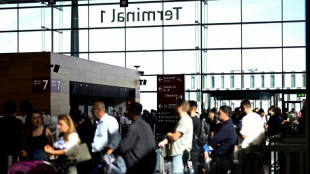 Cyberattack hits European airports
Cyberattack hits European airports
-
Novartis chief eyes ways to end higher US drug prices: media
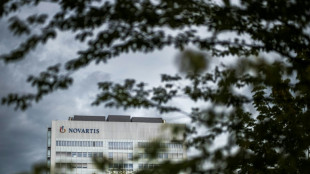
-
 Trump's $100,000 fee for H-1B visas, a tech industry favourite, concerns India
Trump's $100,000 fee for H-1B visas, a tech industry favourite, concerns India
-
Swiatek shrugs off double duty to reach Korea Open final


Warmer climate boosts north German vineyards, for now
The morning sun shines on lush vines as harvesters pick grapes. The hillside vineyard looks like it could be in Italy but lies near Berlin, where climate change has transformed winemaking.
The 75-year-old owner, Manfred Lindicke, said that rising global temperatures over the decades had helped his grapes sweeten and ripen earlier.
"When I started here in 1996, we used to harvest around October 1," he said. "Now we start on September 1."
The climate crisis may be wreaking havoc globally on island nations, deserts and coastal regions, and intensifying disasters from droughts and wildfires to hurricanes and floods.
But in some regions, businesses have benefited from some of its impacts -- including on Lindicke's 7.6-hectare vineyard in Werder, about 35 kilometres (20 miles) southwest of the German capital.
His wine production is among the northernmost in Europe and on the same latitude as Mongolia and Alaska.
Grapevines were grown here in the Middle Ages but disappeared by the mid-19th century "due to frost and economic hardships", Lindicke said.
After Germany's 1990 reunification, pioneers brought winemaking back to this corner of the formerly communist-ruled east, a picturesque town close to the city of Potsdam.
They have benefited from a rise in average summer temperatures of more than 1C since, said Ernst Buescher of the German Wine Institute.
Over 200 hectares of vineyards have been planted in northern Germany since the European Union in 2016 permitted members to expand land used for vineyards by up to one percent a year.
- 'Suitable temperatures' -
About 20 wineries have since also sprung up in the nearby western German state of Lower Saxony, which stretches up to the North Sea.
"Now we have suitable temperatures," said Jan Brinkmann, head of the state's winemaking association. "It was only made possible by climate change."
Brinkmann decided to swap grains on part of his own land for grapes because the vines are a hardier, "less vulnerable" crop, he said.
But he granted that it "will certainly take time" for the product to mature into a truly fine wine.
Werder, for its part, already makes impressive Pinotin, a light and fruity red.
"The wine keeps improving, especially the reds," said volunteer Peter Weymann, 71, who asserted that nowadays "German winemakers have no need to fear the Italians or the Spanish".
But Lindicke said that climate change cuts both ways, with the weather now more unpredictable.
Early harvests, late frosts, droughts and intense sun scorching some grape varieties have all presented growing problems.
"August was relatively dry until its last week," he said, adding that a drip irrigation system fitted to local water pipes meant that "we could, thank God, cover the whole 7.6 hectares".
But the last week of August brought "a lot of rain, much too much", he added.
- 'Flipside: extreme weather' -
For now, German winemakers are "generally winners from climate change", Buescher said, but added that the "flipside" was a rise in extreme weather and some crop diseases.
"Changes in the climate have brought an increasing number of risks for German winemaking in recent years,"he added.
Those risks include downy mildew, a plant disease that flourishes in wet weather, as well as esca, a fungal infection that prefers hot, dry summers.
Fungus-resistant grape varieties now take up three percent of Germany's cultivated vineyards and about half of Lindicke's.
The climate adaptation efforts make life harder for German winemakers as they battle against the well-established industries in southern Europe.
Lindicke said all of this makes it harder to stay competitive against mass-produced wine from neighbouring countries.
"If you can buy a Sauvignon Blanc from France for 2.50 euros ($2.95) and mine costs 12 or 15 euros, it doesn't make sense," he said.
At 75, he is still searching for somebody to take over the family vineyard.
K.AbuDahab--SF-PST
